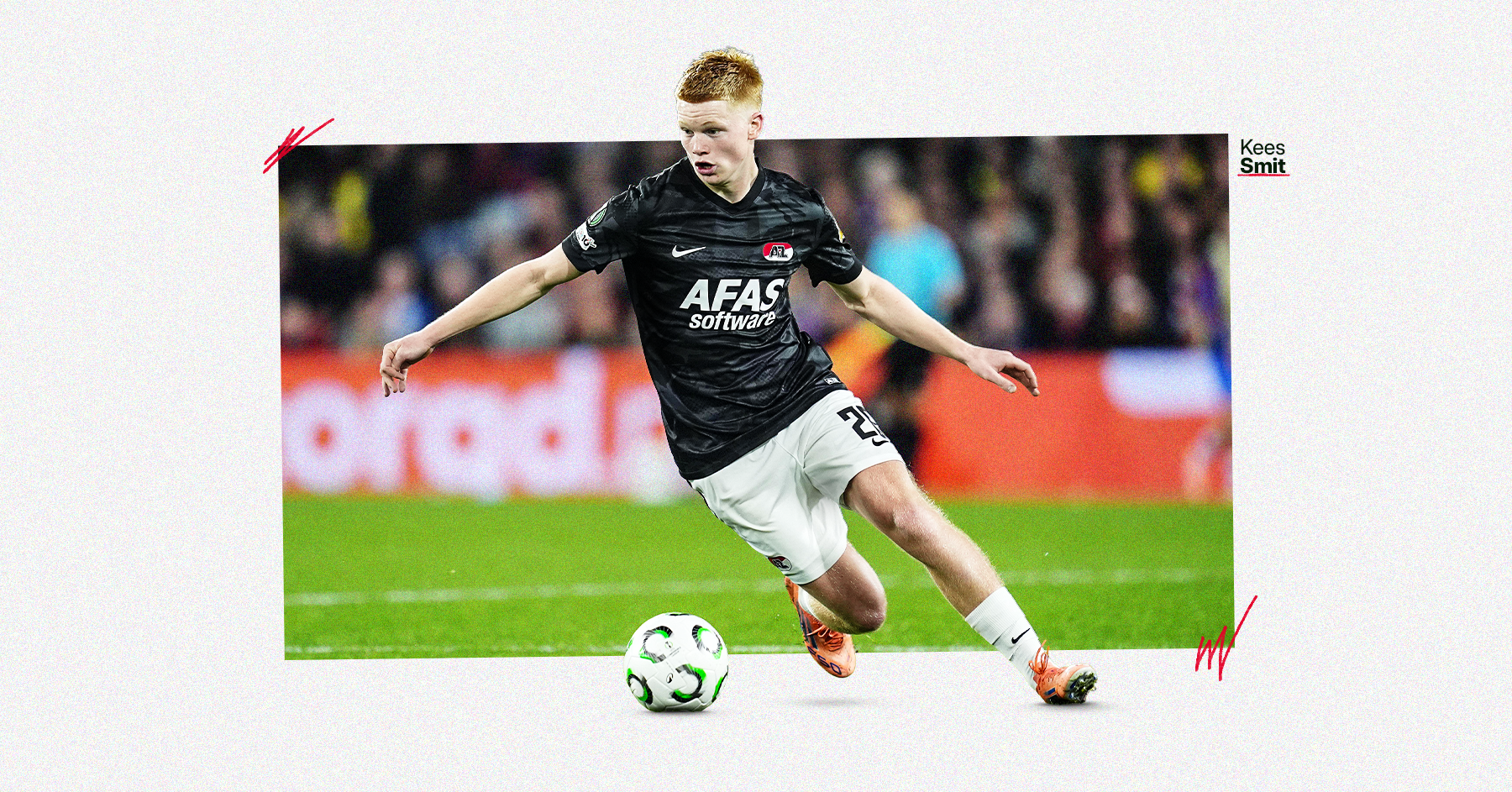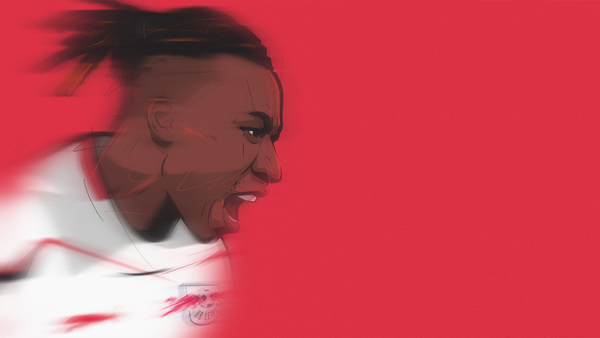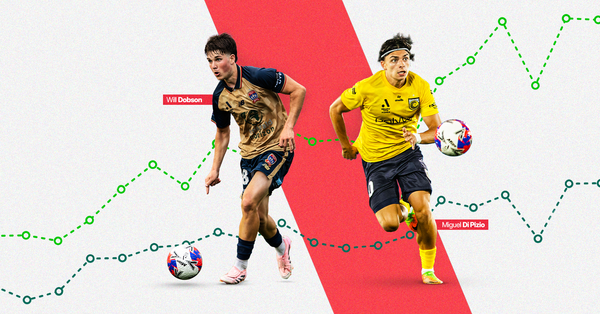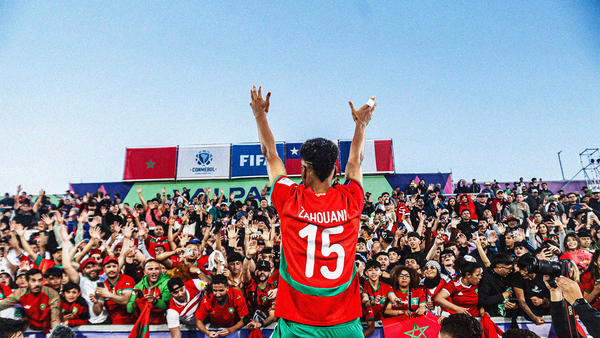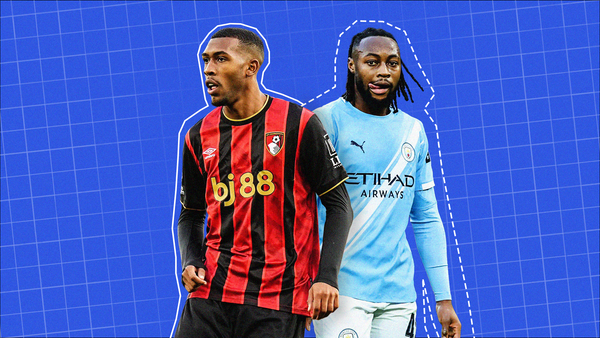Introducing Nathan De Cat
Long limbs, disguised passing, and a bam-bam tempo: breaking down Belgium's teenage number six
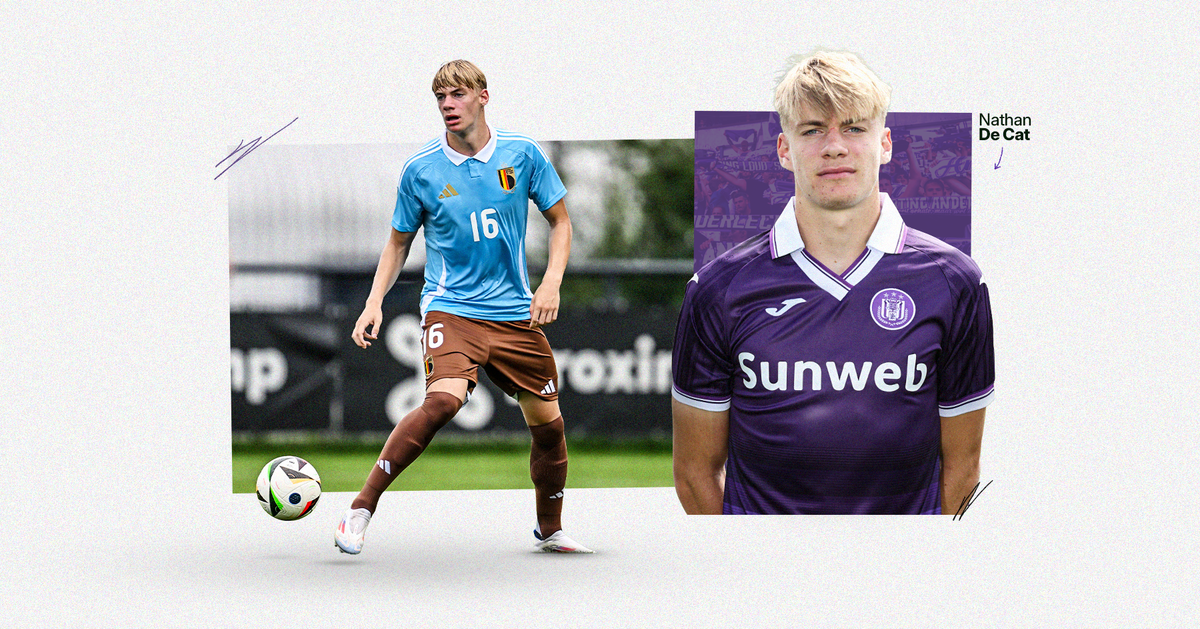
The commentary summed it up: “Nathan De Cat has been at home with the senior side at Anderlecht in the Pro League, the top division in Belgium. He’s turned up here and he’s very much running the midfield.”
You know you’re good when you’re parachuted straight into a starting line-up for a knockout match at a major international tournament. That’s what happened to Nathan De Cat at this year’s FIFA U-17 World Cup.
The 17-year-old’s first and only appearance in a hot and humid Qatar was a Round of Sixteen meeting with European champions Portugal. De Cat had played 88 minutes in a big 1-0 win against Club Brugge for RSC Anderlecht’s senior team just three days prior. His status as a perennial top-flight starter – racking up almost 1,400 senior minutes already this season – meant the Brussels club wouldn’t release him until they had to.
His performances at club and international level, and not least the UEFA U-17 EURO in the summer, have already garnered the attention of Manchester United, Bayern München and more. His performance in this crucial knockout match was a showcase of exactly why – but also, interestingly, why it’s so dangerous to evaluate young players on 90 minutes alone.
Let’s dive into the detail, play by play.
Nathan De Cat was the deepest of three midfielders for Belgium.
His role in possession was to help his side build from the back, play through pressure and progress possession into higher areas. He did that by forming a triangle with his centre-backs, as well as dropping between or beside them to circumvent Portugal's first line of defenders.

If you want to know how important De Cat is to this Belgium team, their opponents showed it straight from the kick-off. The first thing Portugal's Anísio Cabral does is barge the big Belgian to the ground after De Cat takes on the turn and releases.

Less than a minute later, Tomás Soares trips De Cat up after another simple turn and pass.
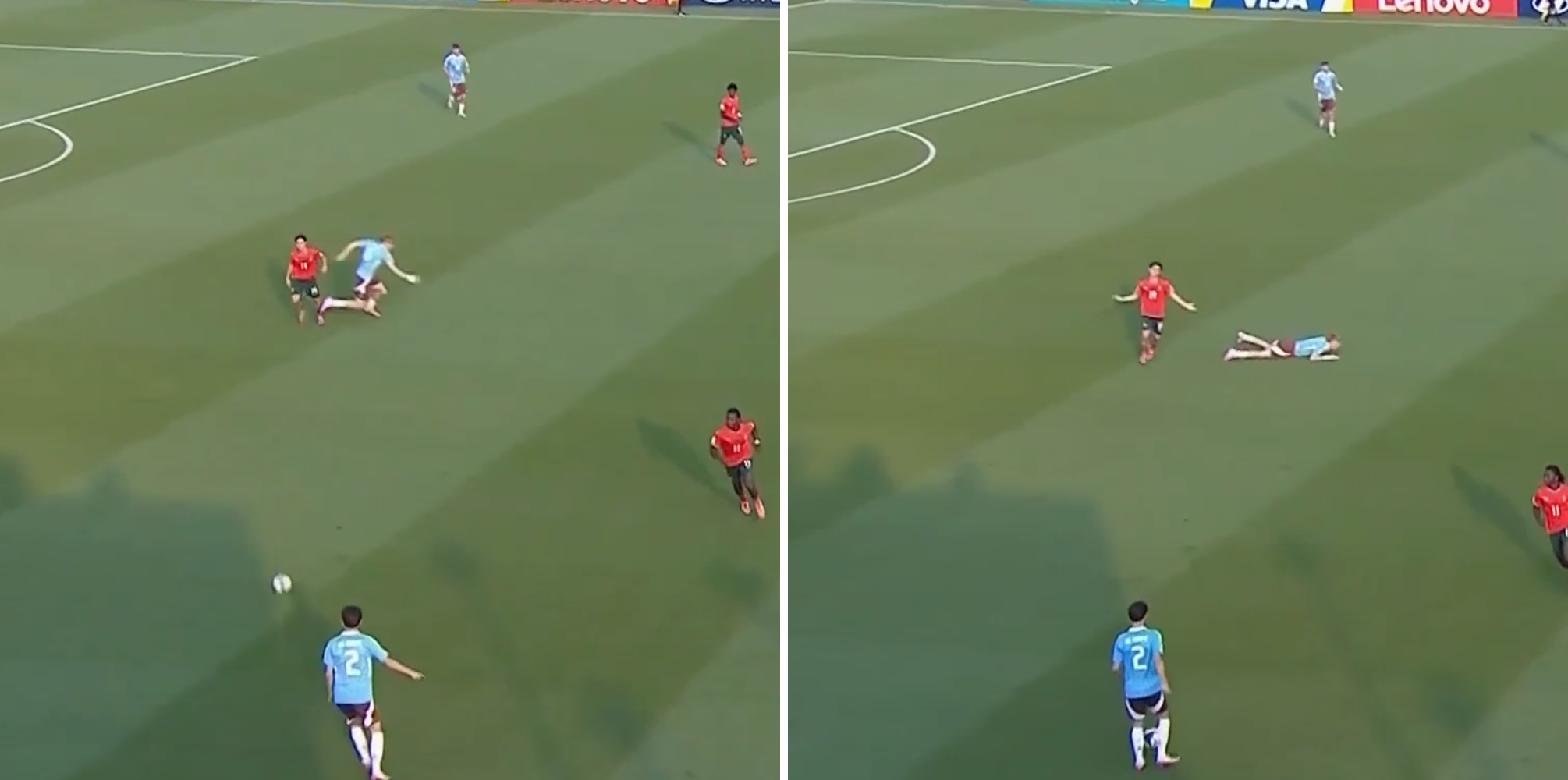
Portugal clearly came intending to leave a little bit on him, to disrupt his rhythm and destabilise his confidence. You can bet that stopping De Cat – in any which way they can – was a primary focus in their pre-match meetings, such is his reputation.
